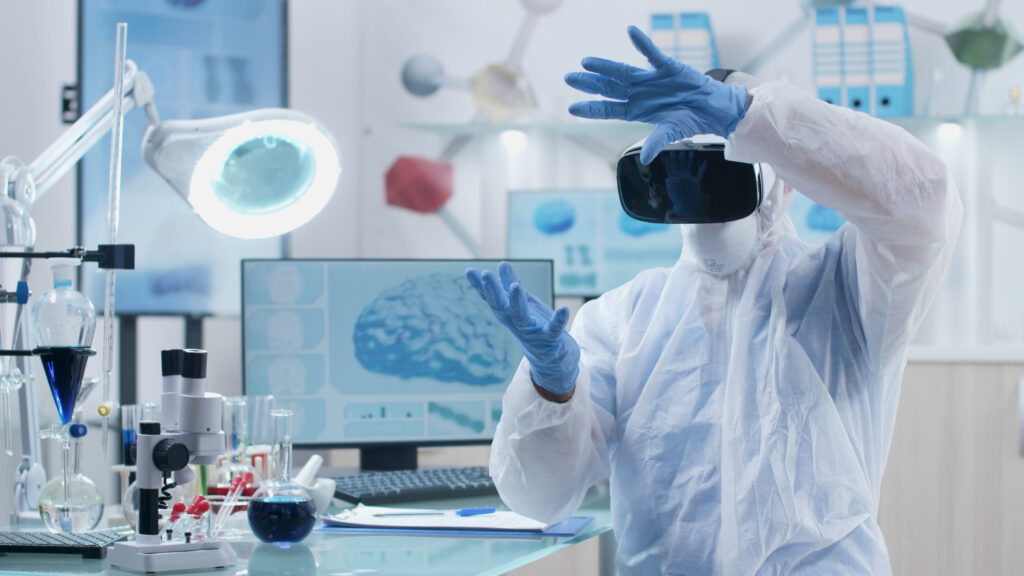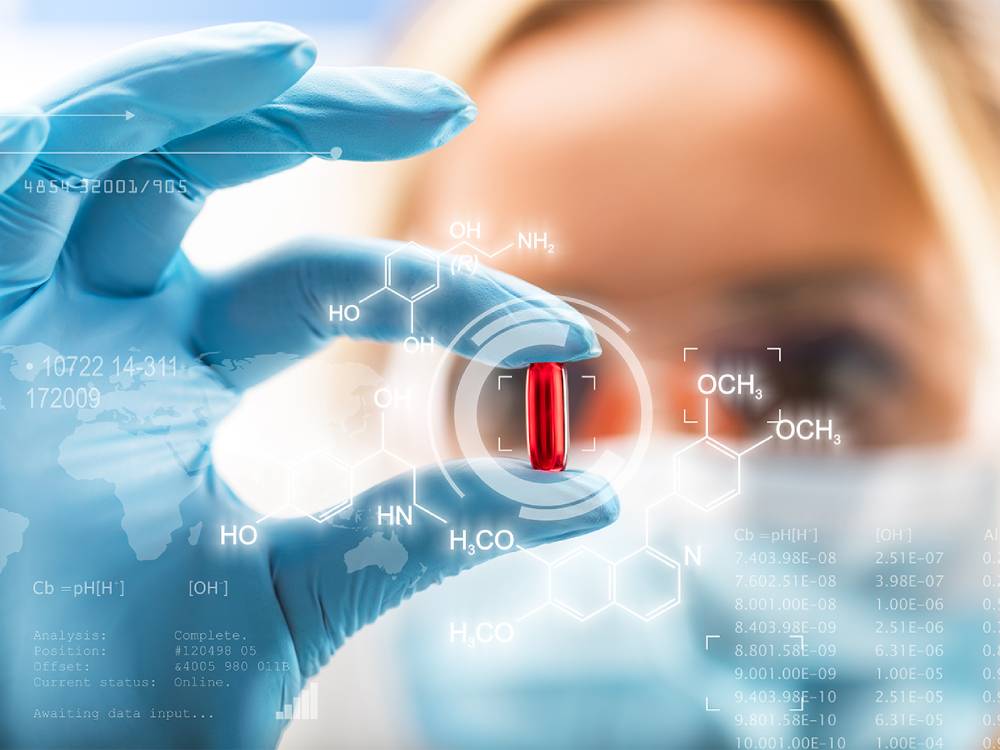The Science Blog

How to Leverage AI for Drug Discovery: Faster Cures, Better Medicine
The pharmaceutical industry is undergoing a profound transformation, driven by artificial intelligence (AI). AI is changing drug discovery. It improves computational chemistry, boosts predictive modelling, and streamlines clinical trials. Traditional drug discovery is slow, expensive, and uncertain, taking over a decade and costing upwards of $2.6 billion per drug. The failure rate is also high, with only 10% of candidates making it through clinical trials. AI offers a faster, more accurate, and cost-effective solution.
This guide explores how to leverage AI for drug discovery, from initial data collection to optimising clinical trials. We will also cover real-world case studies, best practices, and common pitfalls to avoid.
Quick Guide: Leveraging AI for Drug Discovery
- AI is revolutionising drug discovery by automating tasks, predicting molecular interactions, and optimising clinical trials.
- It accelerates the development of more precise and personalised treatments, cuts down costs, and offers faster cures, all while improving drug safety and efficacy.
Why AI Matters in Drug Discovery
1. Accelerating Drug Development
AI automates complex tasks, such as:
- Screening millions of molecular compounds to identify potential drug candidates.
- Analysing biological data to predict how molecules interact with the human body.
- Simulating clinical trials to determine safety and efficacy before real-world testing.
For example, in 2020, AI accelerated COVID-19 vaccine development. Companies like Pfizer and Moderna used AI to identify vaccine candidates in months instead of years.
2. Improving Drug Precision and Personalization
AI enables precision medicine by:
- Analysing genetic, lifestyle, and environmental data for personalised treatments.
- Predicting drug responses based on factors like age, ethnicity, and pre-existing conditions.
- Minimising harmful side effects through pre-trial risk assessments.
AI is especially helpful in oncology. It creates targeted cancer therapies that attack tumours but spare healthy cells.
3. Reducing Drug Development Costs
AI lowers pharmaceutical research costs by:
- Reducing failed drug trials through more accurate predictions.
- Optimising lab experiments to avoid unnecessary testing.
- Improving resource allocation, saving time and money.
According to Deloitte, AI-driven drug discovery could cut R&D costs by up to 70%, making medicine more affordable and accessible.
Pro Tip: Use AI to complement, not replace, human expertise—AI can streamline processes, but human judgment is essential for a successful outcome
Step-by-Step Guide: How AI is Transforming Drug Discovery
Step 1: Data Collection and Management
AI relies on vast datasets, including:
- Genomic and proteomic data (to understand disease mechanisms).
- Historical drug trial results (to learn from past successes and failures).
- Chemical compound databases (to identify new drug candidates).
BenevolentAI and similar companies use AI to study medical literature. This helps them find promising compounds faster.
Step 2: AI-Powered Molecule Screening
AI accelerates drug screening by:
- Predicting how molecules interact with disease-causing proteins.
- Filtering out ineffective compounds early in development.
- Suggesting modifications to improve drug efficacy.
In 2023, Insilico Medicine found a possible lung disease treatment using AI. They did this in only 30 days, while this usually takes years.
Step 3: Predictive Modeling and AI Simulations
AI simulates human biological responses to drugs, reducing reliance on animal and human testing. This helps researchers:
- Identify toxic compounds before human trials.
- Predict drug behaviour in different patient populations.
- Optimise dosage and minimise side effects.
Exscientia, a UK-based AI pharma company, designed a novel OCD drug with AI, entering clinical trials in 12 months—five times faster than usual.
Step 4: Optimizing Clinical Trials
Clinical trials are the most expensive and time-consuming stage of drug development. AI enhances this process by:
- Selecting the best patient groups for trials.
- Detecting early signs of trial failure.
- Automating data analysis for faster approvals.
AI-powered platforms, such as Deep 6 AI, assist pharmaceutical companies in locating eligible patients for clinical trials. This support leads to faster trial starts and higher success rates.

Real-Life Case Studies & Statistics
1. DeepMind’s AlphaFold: A Breakthrough in Protein Structure Prediction
In 2020, DeepMind’s AlphaFold AI tackled a big problem. It predicted protein structures. Understanding protein folding helps researchers:
- Identify disease mechanisms, such as in Alzheimer’s and Parkinson’s.
- Design drugs that interact with proteins more effectively.
- Develop treatments faster than ever before.
2. AI & COVID-19 Drug Discovery
AI played a crucial role in:
- Identifying antiviral drugs for COVID-19 treatment.
- Speeding up vaccine development through genetic analysis.
- Predicting virus mutations to design booster shots.
Moderna and BioNTech used AI-driven RNA sequencing to develop COVID-19 vaccines in record time.
Expert Tips & Common Mistakes to Avoid
Best Practices for AI-Powered Drug Discovery
- Emphasise data quality: AI models rely on accurate, diverse datasets.
- Combine AI with human expertise: AI should assist scientists, not replace them.
- Regularly update AI algorithms: AI models must evolve with new medical discoveries.
Common Pitfalls
- Overreliance on AI: AI speeds up research, but human validation is crucial.
- Ignoring ethical concerns: AI models should be transparent and unbiased.
- Not considering regulatory challenges: AI-driven drugs still require rigorous approval processes.
Future of AI in Drug Discovery
AI is set to revolutionise medicine further by enabling:
- AI-powered drug design tailored to individual patients.
- Faster vaccine development for emerging diseases.
- Predictive healthcare that prevents illnesses before they develop.
The question is not if AI will transform medicine but how quickly we can embrace it.
Important: AI’s role in drug discovery is still evolving. While it promises faster, cheaper solutions, it is crucial to ensure data quality, address ethical concerns, and navigate regulatory challenges for safe and effective implementation.
Frequently Asked Questions (FAQ)
How does AI improve drug discovery compared to traditional methods?
AI speeds up drug discovery. It automates screening and predicts how molecules interact. Also, it optimizes clinical trials. This all cuts down on time and costs.
Can AI replace human scientists in drug discovery?
No. AI is a strong tool that boosts human skills. However, it can’t take the place of scientific judgment, ethical choices, or regulatory steps.
What are the biggest challenges in AI-driven drug discovery?
Challenges are: ensuring data quality, minimising biases, addressing ethical concerns, and navigating tricky regulations.
How does AI contribute to precision medicine?
AI examines genetic, lifestyle, and environmental information. It crafts personalised treatments that boost drug effectiveness and reduce side effects.
Is AI already being used in real-world drug development?
Yes. AI played a key role in developing COVID-19 vaccines. It also helped in cancer research and finding new treatments for diseases like lung fibrosis and OCD.
How can smaller pharmaceutical companies adopt AI for drug discovery?
Smaller firms can use AI in several ways. They can team up with biotech startups that focus on AI. They can also use cloud-based AI platforms. Additionally, investing in AI training for researchers is important.
What is the future of AI in drug discovery?
AI will change drug development. It will make treatments more personal. It will speed up research and may even predict diseases before they appear.

AI’s Revolutionary Impact on Drug Discovery
AI is revolutionising drug discovery, offering faster cures, better precision, and reduced costs. As technology evolves, the potential for AI-driven breakthroughs in medicine is limitless. The future of healthcare depends on how quickly we can integrate AI into drug development.
Are you ready for the AI-driven future of medicine? Share your thoughts in the comments!









